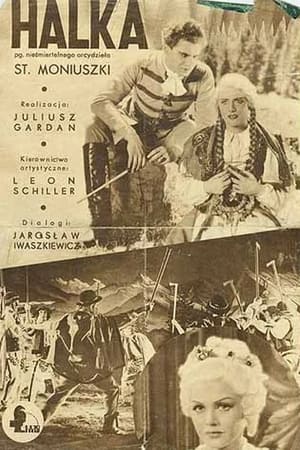

The Ring of the Nibelung: The tetralogy in one single evening with actors and marionettes(2013)
Staged by the Salzburger Marionettentheater. Wagner's great epic condensed into two hours — compact, humorous and very exciting! Marionettes encounter actors and take us into a time tunnel of mythological entanglements.

Movie: The Ring of the Nibelung: The tetralogy in one single evening with actors and marionettes
Top 2 Billed Cast
Sie
Er
Video Trailer The Ring of the Nibelung: The tetralogy in one single evening with actors and marionettes
Similar Movies
Bluebeard(fr)
When Barbe-bleue loses his fifth wife, the turbulent Boulotte is selected at random to be the next one. But Barbe-Bleue falls in love with Hermia – who loves the shepherd Saphir – and soon wearies of Boulotte. So, he asks his alchemist to concoct for him an “anti-wife” philtre. But, as on the previous occasions, it is merely a sleeping potion and Boulotte wakes up the other five “dead” wives. They reappear, dressed up as gypsies and bring the truth to light.
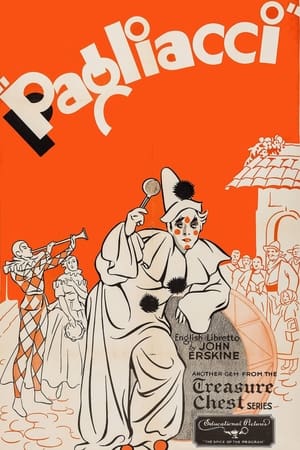 1.0
1.0Famous Scenes from Pagliacci(en)
Scenes from Ruggero Leoncavallo's opera with Canio, the clown, introducing actors who are seen in pantomime while the operatic voices are heard off-screen. Canio discovers his wife has been unfaithful but carries on with his performance.
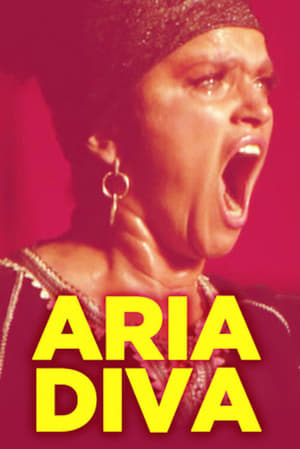 0.0
0.0Aria Diva(pl)
Basia has already settled down in her life. She is a housewife and has a loving family. It seems as though she does not miss anything to be happy. Until a moment when an opera diva moves into an apartment upstairs. Basia is enchanted and seduced with her voice. A peculiar relationship is born between them. It develops into a feeling which is not particularly comfortable for either of the two women.
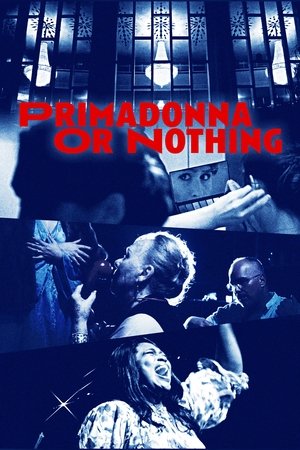 0.0
0.0Primadonna or Nothing(en)
From the first steps of an emerging singer to the final bow of a celebrated soprano, 'PRIMADONNA OR NOTHING' follows three relentless women who sacrifice everything to be an opera star.
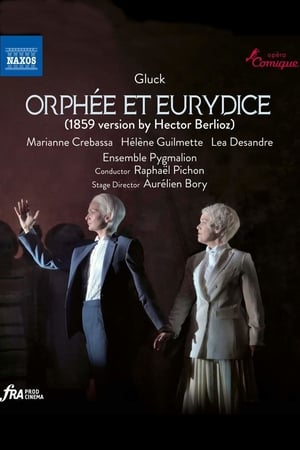 0.0
0.0Gluck: Orfeo ed Euridice(fr)
Amour, the messenger of the gods, tells Orpheus that he may descend to the underworld and return with Eurydice. His singing has the power to appease the Furies and animate the blessed Shadows. Yet, his voice cannot reassure Eurydice who despairs of the feigned indifference of Orpheus, put to the test by Jupiter. Raphaël Pichon conducts the opera of operas and Aurélien Bory displays the giddiness of the mental and supernatural spaces traveled by Orpheus and beyond. Marianne Crebassa plays a new breeches role with Hélène Guilmette (Hélène in Le Timbre d’argent) and Lea Desandre (the title role in Alcione).
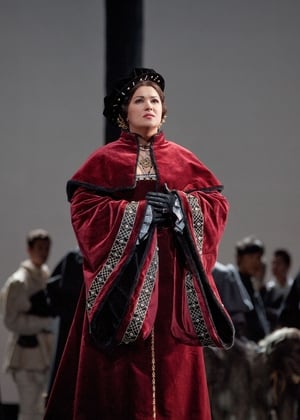 0.0
0.0The Metropolitan Opera: Anna Bolena(en)
David McVicar's atmospheric and brooding production captures the drama of this riveting piece of British history, retold as only Donizetti could. International superstar Anna Netrebko is Queen Anne Boleyn, trapped in an unhappy marriage to King Henry VIII (Ildar Abdrazakov) whose roving eye has settled on another woman—Jane Seymour (Ekaterina Gubanova), Anna's friend, but now her unwitting rival. Add in Anna's early love, Percy (Stephen Costello), just returned to the court from exile, and the result is a haunting, explosive account of Queen Anna's tragic final days, before she goes to her execution in one of the most moving and dazzling final scenes in all of opera.
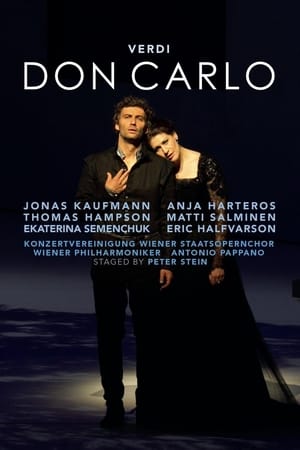 0.0
0.0Verdi: Don Carlo(it)
Verdi wrote this five act opera with a French Libretto for the Paris opera. Premiere 1867. Then there are three versions of this opera, the French 1867 version, the revised Italian four Act Don Carlo 1884, plus the Modena version 1886. This version is the 1884 version with Act One reinstated, as well as the original beginning of Act 2. To complicate matters the French opera was simply translated into Italian, and then the changes were made. There is an even newer edition completed in 1980 by Ricordi, and others floating around as well.
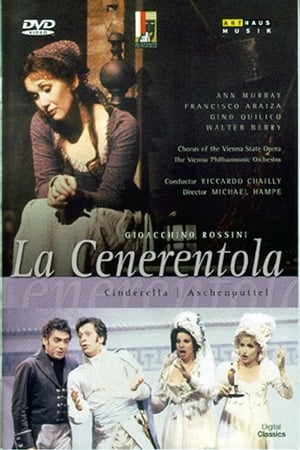 0.0
0.0La Cenerentola(it)
A timeless tale told in a florid bel canto style, Rossini’s take on the Cinderella story offers an ideal propellant for a virtuosic mezzo-soprano to rocket from rags to riches. But in this retelling, the supporting characters soar just as high: Cinderella’s Prince, her stepfather, and the Prince’s valet are given memorable arias, and the composer rounds out his score with ingenious ensemble flourishes. A vivacious masterpiece, La Cenerentola brings stock fairy tale characters to dazzling life.
La Cenerentola(it)
"This is Vienna State Opera live at home". December 2014.
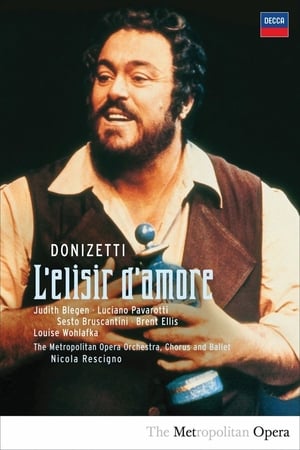 0.0
0.0L'Elisir d'Amore(it)
The Metropolitan Opera performance of L'Elisir d'Amore is conducted by Nicola Rescigno and features Luciano Pavarotti in the title role. Donizetti's graceful melodies have long endeared his L'Elisir d'Amore to operatic audiences and performers alike. Judith Blegen, Louise Wohlafka, Luciano Pavarotti, Nicola Rescigno, Sesto Bruscantini.
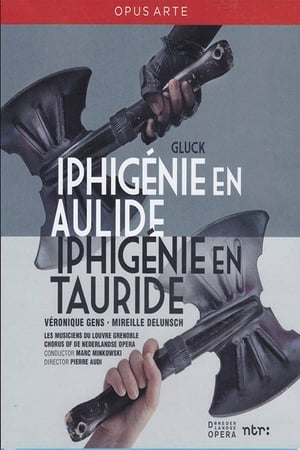 8.0
8.0Gluck: Iphigenie en Aulide / Iphigenie en Tauride(fr)
Before the Trojan War, Agamemnon gathered the Greek armies at the port of Aulis. The goddess Diane sent unfavorable winds to prevent the Greeks from sailing. Her oracle set a condition for Agamemnon: to earn the right to sail forth and destroy an innocent country, he would have to sacrifice his own daughter. Agamemnon accepted these terms and killed his young daughter Iphigénie on the altar. In his play Iphigenia in Tauris Euripides imagines that Diane plucked Iphigénie from that altar and delivered her to a temple in distant Tauride, where Iphigénie began to serve the enemy Scythians as Diane’s high priestess—all the while Iphigénie’s family believing her dead.
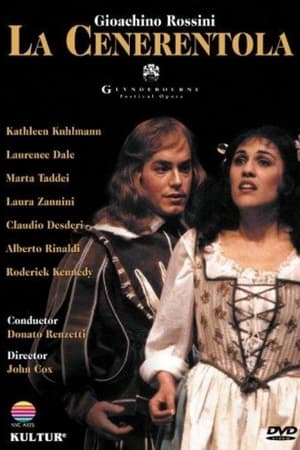 0.0
0.0Rossini: La Cenerentola(it)
La Cenerentola is Gioachino Rossini's version of the popular Cinderella story, an exciting mixture of comedy, pathos, coloratura fireworks and masquerade. This Glyndebourne production by John Cox captures perfectly the fairy-tale spirit of the piece, matched by Allen Charles Klein's imaginative scenery, distorted like three-dimensional cut-outs in an old-fashioned story book.
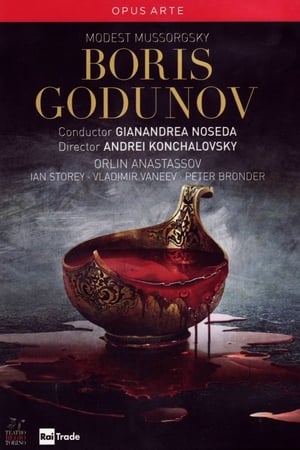 0.0
0.0Mussorgsky: Boris Godunov(ru)
A one-off production of Boris Godunov was staged by Andrei Konchalovsky at the Teatro Regio in Torino in 2010, with Orlin Anastassov in the leading role and Gianandrea Noseda conducting the Orchestra del Teatro Regio.
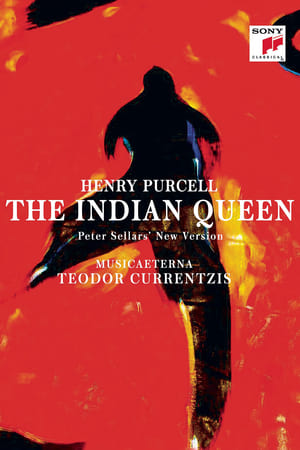 9.0
9.0Purcell: The Indian Queen(en)
A superb adaptation of Purcell's the Indian Queen, staged and directed by Peter Sellars and performed in 2013 at the Teatro Real in Madrid. Peters Sellars combines John Dryden and Robert Howard's libretto with a short-story written by the Nicaraguan writer Rosario Aguilar, La niña blanca y los pájaros sin pies.
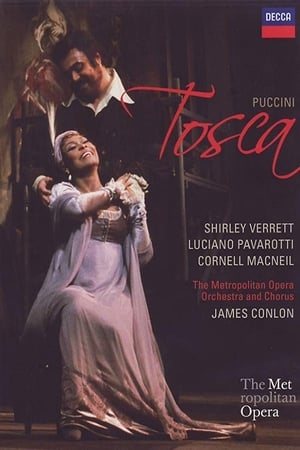 0.0
0.0Tosca(it)
A stellar cast brings Puccini’s spellbinding opera to life, seizing every opportunity to thrill the audience. Luciano Pavarotti is Cavaradossi, the painter and political revolutionary in love with the beautiful and famous singer Tosca (the riveting Shirley Verrett). Rome’s diabolical chief of police, Baron Scarpia (Cornell MacNeil), wants Tosca for himself—but he underestimates the fury of a woman in love. With torture, murder, and a suicide in its final moments, Tosca packs more dramatic punches than most other operas—and this classic telecast captures them all. James Conlon conducts in a production by the incomparable Tito Gobbi, one of the great Scarpias of the 20th century.
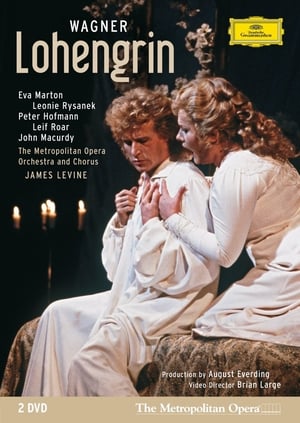 0.0
0.0Lohengrin(de)
Wagner’s Romantic opera demands singing actors who can truly inhabit their parts, and that’s just what we have here. Is it possible for a Knight of the Holy Grail to look more enticing than Peter Hofmann? No wonder Elsa (Eva Marton) falls in love at first sight. Marton’s heroine is innocent, but she is also a passionate, real-life young woman—which is good, because Leonie Rysanek is positively demented as Ortrud, the sorceress who accuses Elsa and Lohengrin of using magic. With James Levine’s superb conducting, the orchestra and chorus are similarly magical.
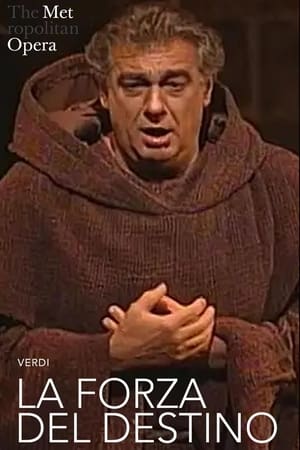 0.0
0.0La Forza del Destino - The Met(en)
With James Levine at the helm, Verdi’s multi-faceted masterpiece is revealed as a drama of almost Shakespearean proportions. Superstar Plácido Domingo takes on he demanding role of Don Alvaro, the outcast whose noble gesture unwittingly sets the wheels of fate in motion and destroys an entire family. Sharon Sweet is Leonora, the woman he loves, and Vladimir Chernov singe her vengeful brother Don Carlo, whose twisted hate is all-consuming. Roberto Scandiuzzi is the benevolent Padre Guardiano.
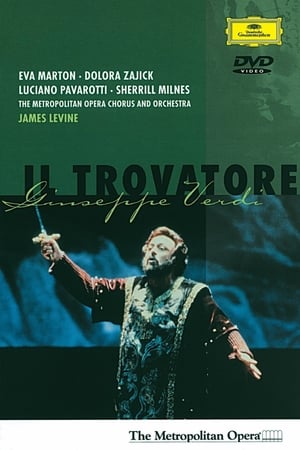 8.0
8.0Il Trovatore(it)
Luciano Pavarotti brings his spectacular voice and artistry to one of the most famous of all tenor roles—Manrico, the ardent troubadour, trapped in an impossible situation by forces beyond his control. The sensational Dolora Zajick, only days after her Met debut, gives an incandescent performance as the demented gypsy Azucena, thirsting for revenge against Count Di Luna (Sherrill Milnes). Eva Marton is the passionate Leonora, desired by both Manrico and the Count, and James Levine brilliantly leads the Met’s orchestra and chorus in some of Verdi’s best-known music.

